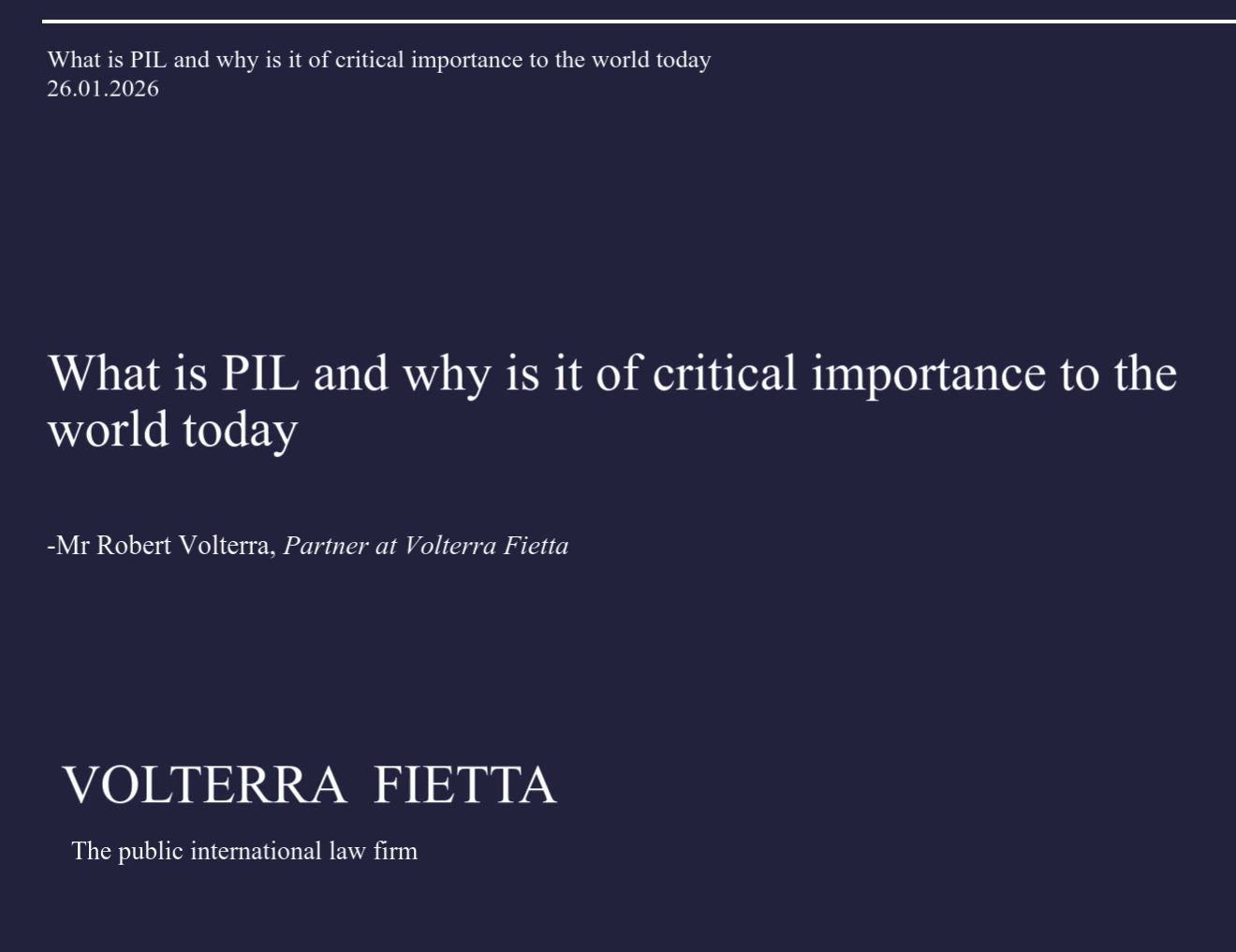Background to the dispute
On 15 February 2012, the M.V. Enrica Lexie, a commercial oil tanker flying the Italian flag, was transiting in international waters approximately 20.5 nautical miles off the coast of India. Six Italian Navy marines were deployed on board the Enrica Lexie to protect the vessel against piracy. Two Italian marines, Sergeants Latorre and Girone, allegedly shot and killed two Indian fishermen on board the fishing vessel St Antony. Shortly after the incident, the Indian Coast Guard asked the Enrica Lexie to navigate to the nearby Kochi port. After an investigation, Indian authorities arrested the two Italian marines and took them into custody. Eventually, the Italian marines were charged with murder and violence and remained in detention for around two years.
On 26 June 2015, Italy brought a claim against India to the PCA tribunal under Article 287 and Annex VII, Article 1 of UNCLOS. Italy argued that, in ordering the Enrica Lexie to port, India violated Italy’s freedom of navigation under Article 87(1)(a) of UNCLOS and Italy’s exclusive jurisdiction over the Enrica Lexie under Article 92 of UNCLOS. Italy also argued that exercising criminal jurisdiction over the Italian marines violated India’s obligation to respect their functional immunity as Italian State officials exercising official functions under Articles 2(3), 56(2), 58(2) and 100 of UNCLOS. Italy also argued that, by failing to cooperate in the repression of piracy, India violated Article 100 of UNCLOS.
India objected to Italy’s claims and brought counter-claims. India argued that, by firing at the St Antony, Italy had violated India’s freedom and right of navigation under Articles 87 and 90 of UNCLOS, among others.
Italy’s request for provisional measures
On 21 July 2015, pending the constitution of an arbitral tribunal, Italy filed a request for the prescription of provisional measures with the International Tribunal for the Law of the Sea (“ITLOS”) pursuant to Article 290(5) of UNCLOS. Italy requested that ITLOS order India to refrain from exercising any form of jurisdiction over the Enrica Lexie incident and the two Italian marines. On 24 August 2015, the ITLOS tribunal ordered that “Italy and India shall both suspend all court proceedings and refrain from initiating new ones which might aggravate or extend the dispute.”
On 11 December 2015, Italy filed a request for provisional measures pursuant to Article 290(1) of UNCLOS. Italy further requested the tribunal to “take all measures necessary to ensure that restrictions on the liberty, security and movement of the Marines be immediately lifted.” At that time, both marines had been released on bail. In the end, Sergeant Latorre was allowed to return to Italy for medical reasons while Sergeant Girone remained in India.
On 29 April 2016, the tribunal ordered that “there should be no undue restraint on individuals as a result of extended arbitration proceedings between States.” In this regard, the tribunal decided that both countries shall cooperate “to achieve a relaxation of the bail conditions of Sergeant Girone so as to give effect to the concept of considerations of humanity,” allowing him to return to Italy. The tribunal confirmed that Italy would be obliged to return the marines to India in case the tribunal found in the merits that India had jurisdiction over them in respect of the Enrica Lexie incident.
The tribunal’s award
The tribunal eventually decided by majority that “the Marines are entitled to immunity in relation to the acts that they committed during the incident of 15 February 2012, and that India is precluded from exercising its jurisdiction over the Marines.” The tribunal took note of Italy’s commitment to resume its domestic criminal investigation into the Enrica Lexie incident and decided by majority “that India must take the necessary steps to cease to exercise its criminal jurisdiction over the Marines, and that no other remedies are required.” The tribunal rejected all other claims by Italy, including the allegations of the violation of its freedom to navigate.
The tribunal unanimously held that Italy violated India’s freedom and right of navigation under Articles 87(1)(a) and 90 of UNC
LOS by interfering with the navigation of the St Antony. Therefore, the tribunal found that India “is entitled to payment of compensation in connection with loss of life, physical harm, material damage to property […] and moral harm suffered by the captain and other crew members of the ‘St. Antony’.”
Conclusion
Although the full legal and factual analysis is not yet publicly available, the tribunal appears to have recognised that the military personnel in this case were entitled to functional immunity even if they were aboard a commercial vessel. At the same time, the tribunal accepted that shooting at the fishing vessel St Antony, and killing two of its crewmembers, constituted a violation of international law. This tragic incident underscores the international obligation to train and supervise properly military personnel at high Seas.
For further information, please contact Robert Volterra (Robert.volterra@volterrafietta.com) or Gunjan Sharma (Gunjan.sharma@volterrafietta.com).



